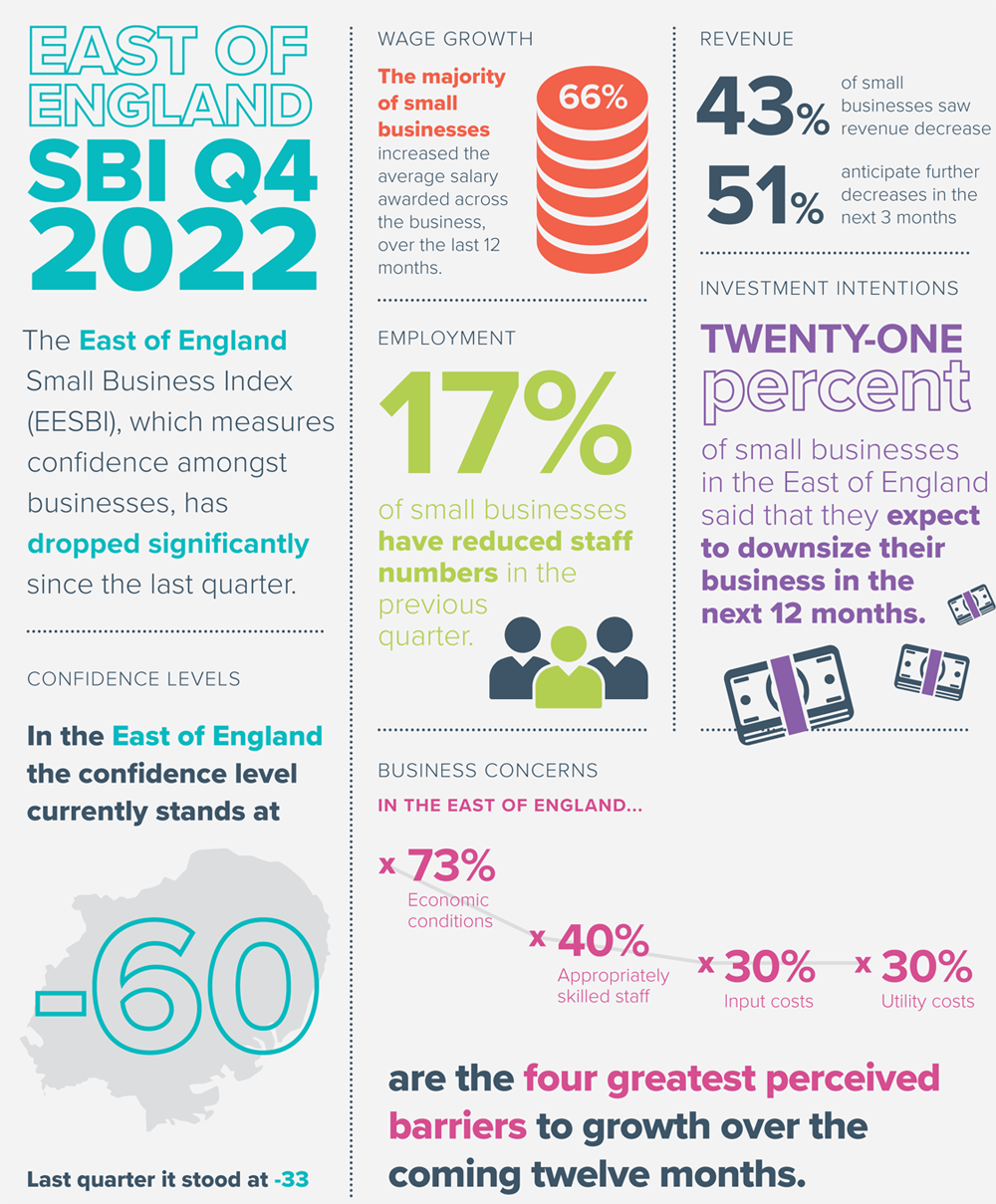Confidence amongst small businesses in the region has plummeted to its lowest level since the pandemic, according to the latest survey from the Federation of Small Businesses. And compared to other regions in the UK, small firms in the East of England are less optimistic about the future.
The results of the survey, covering the last three months of 2022, also showed a drop in the number of businesses intending to grow and invest, and an uptick in the number of small firms planning to scale-back their business.

Candy Richards, Development Manager (East Anglia) at the Federation of Small Businesses, said “Our region’s small businesses are facing extreme challenges with costs spiralling across the board. On top of this, the uncertainty in the economy has a knock-on impact on consumer spending, with households reigning in or delaying purchases. Therefore, it is little surprise that businesses are feeling so bleak about the future.
“We know that 1 in 4 small businesses said that they would have to close, restructure or scale-back if the Government cut support on business energy bills. So, with the energy bills relief scheme ceasing at the end of March, and small firms getting minimal support from April, we may yet see worse to come for many of our best-loved local businesses.”
Staffing also continues to present challenges for the region’s small businesses, with 66% citing that they saw wage bills rise as the cost of living impacts employees. With plans to grow put on pause, small businesses also held back in increasing head-count during the last quarter of 2022. And just 15% of businesses plan on hiring more staff in the first three months of 2023.
Reflecting on the results of the survey, Candy Richards said “What the Government must do now is to develop concrete growth plans and get serious about backing small businesses. With 3 in 5 people working for small firms, it is vital that we get stability and strength back into our economy to protect jobs and give small firms the certainty they need to thrive.”
“The Chancellor has set out his plans for economic growth ahead of the spring budget, outlining four pillars to build a successful, prosperous economy. But policy decisions now must match his new four-pillar framework.
“The Government should focus on helping more people into work, tackling late payment, driving energy efficiency, powering R&D and getting more people to start up on their own are all initiatives that will make a real difference to the economy.”
FSB’s plan to help small businesses
- Tackle late payment once and for all, by making the audit committees of large corporates responsible and accountable for supply chain payment practices, with a legal requirement that payment times and conditions be published in annual reports.
- Address recruitment troubles by taking action to help people access affordable childcare, creating a ‘Kickstart’-style scheme to help more people kept out of work through health problems to access work, and bringing in skills bootcamps for the over-50s.
- Introduce a Help to Green voucher with a suggested value of £5,000, to be used by small firms to invest in green improvements to their premises, such as a heat pump, better insulation, or solar panels. This will stimulate the economy, cut emissions, and reduce small firms’ energy bills at the same time.
- Promote small businesses’ investment in R&D by reversing the cut to R&D tax credits brought in at the Autumn Statement, and reduce the complexity within the application process so small firms can navigate it without the need to hand over a large cut of any relief they gain to intermediaries.
- Reform the way taxes are levied to help boost small firms - increasing Small Business Rate Relief to £25,000 in England and raising the VAT threshold from £85,000 to £100,000 to help the self-employed work more hours.
Click below to read the full report

